

|
 |
Frost on Sunday
R2 - United Kingdom - Network Review written by and copyright: Paul Lewis (25th April 2009). |
|
The Show
 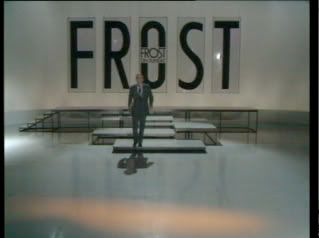
One of the first regular shows produced by London Weekend Television, Frost on Sunday (LWT, 1968-70) followed the satirical tone of David Frost’s earlier series The Frost Report (BBC, 1965-7). Like The Frost Report, Frost on Sunday featured a variety of sketches about topical issues. Frost on Sunday also saw input from many of the key personnel involved in the production of The Frost Report, including Ronnies Barker and Corbett before their long-running series The Two Ronnies (BBC, 1971-87). 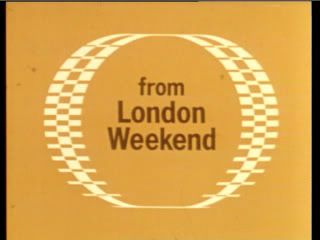
In 1968, LWT acquired the ITV weekend franchise for television in the London area, with Thames Television (formed by the merger of ABC and Associated-Rediffusion) delivering content on ITV from Mondays to Fridays. LWT’s predecessor had been Lew Grade’s company ATV London; during the 1960s, ATV’s focus on populist shows such as Sunday Night at the London Palladium (ATV, 1955-67) had led to ATV being criticised as focusing too heavily on trivial light entertainment-based shows (for example, in the 1962 Pilkington Report), although ironically this is precisely the aspect of modern ITV programming which tends to attract the most praise. As Charles Denton (a former programme controller for ATV) observed in 1993, ‘ATV lost its franchise because it was too populist, but Lew would be sensationally right for ITV now’ (Summers, 1993: np). LWT began its life as the London Television Consortium (LTC); the chief mover-and-shaker behind the LTC was David Frost, who decided to apply for the London weekend franchise. Frost engaged the services of Frank Muir, then-head of BBC situation comedy production, Michael Peacock (the former Head of BBC1) and a variety of other key figures from the world of television production. The LTC submitted a report to the Independent Television Authority (ITA), outlining their intention to substitute ATV’s light entertainment-based weekend programming for an output of arts programming and satire, effectively trying to push ITV’s weekend output ‘upmarket’ and place it in competition with the BBC’s focus on ‘quality’ programming. 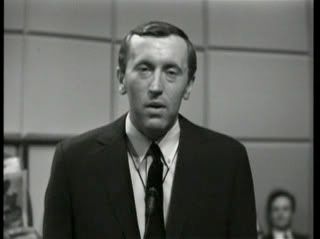
The changeover to LWT and Thames Television aggravated many of the staff within the ITV networks, who were forced to reapply for their jobs. Thus on the first night of LWT’s programming (2nd August, 1968), the Association of Cinematograph Television & Allied Technicians (ACTT) initiated a strike that lasted for three weeks, effectively crippling LWT during its first weeks of broadcast. The strike affected many programmes, including the first episode of Frost on Sunday, broadcast on the 4th of August, 1968 (and included in this DVD set). The strike is acknowledged by David Frost in his introduction to the show; the cameras were manned by management personnel, and as a result the show has a rough-edged visual style, with many shots being sloppily framed or out of focus. Frost on Sunday epitomised LWT’s early output, in its focus on satire rather than the variety-themed light entertainment shows that had dominated ATV’s weekend programming. The fifty-minute long episodes mix satire, sketch-based humour, musical performances (for example, Rolf Harris singing the first Number One of the 1970s, ‘Two Little Boys’), discussion of current affairs and ‘arts programming’ features (such as interviews with comedians like Kenneth Williams). The majority of the sketches are performed by Ronnie Barker and Ronnie Corbett, with input from guests such as Michael Palin, Vincent Price and Josephine Tewson. Some of the sketches are very quickfire in their approach: for example, during one sketch in the first episode a young woman walks on stage and asserts ‘I’m sorry; I’m forty minutes late’, to which Ronnie Corbett simple replies, ‘Well, let’s not start worrying just yet’. The Fast Show, eat your heart out. 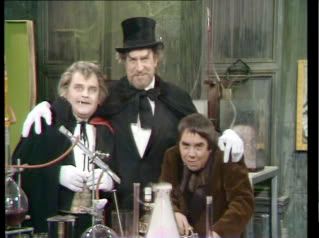 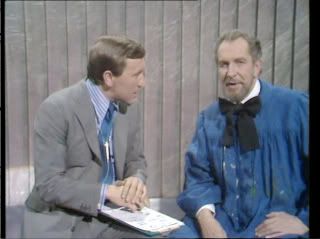
By 1970, LWT began to discover that it had misjudged its audience, and the channel’s output was haemorrhaging viewers to the BBC, who had already begun to restructure their weekend programming around light entertainment shows. Meanwhile, David Frost and LWT were involved in a long-running power struggle with Lew Grade and ATV; other ITV networks (including Yorkshire Television), who were still influenced by Lew Grade, began to give David Frost’s shows Frost on Friday, Frost on Saturday and Frost on Sunday less prominence within the schedules. Eventually, YTV dropped Frost on Sunday completely, in favour of ATV’s Tonight With Dave Allen. Gradually, LWT began to change its output, and in the early 1970s it evolved into the populist channel that, today, it is remembered for being, filling its weekend schedules with situation comedies such as Please Sir! (LWT, 1968-72) and On the Buses (LWT, 1969-73). 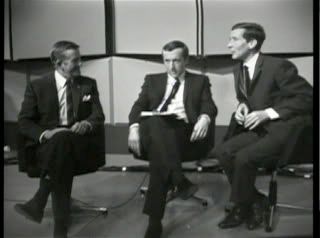 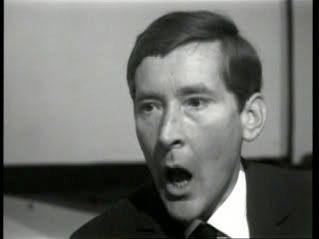
Consequently, these episodes of Frost on Sunday are a time-capsule of a period when commercial television tried to abandon the light entertainment formula that still dominates the schedules. Featuring the comic talents of a variety of great performers, including the legendary Ronnies Barker and Corbett, some of the sketches are very funny; Frost’s satirical monologues are frequently razor sharp, although it’s worth remembering that satire is always ephemeral as many of Frost’s monologues may necessitate either a little historical research or memory-searching. 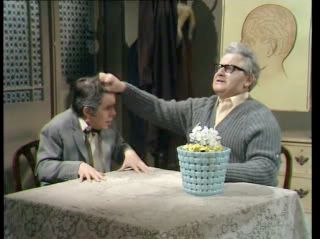 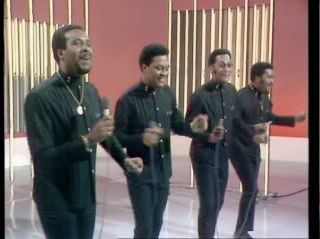
This release contains the ten surviving episodes of the series. The episodes are spread across three discs; disc one contains four episodes, including the first episode from 1968, whilst discs two and three contain three episodes apiece.
Video
Shot on video in a studio environment, these episode look about as good as they should be expected to. They are presented in their original broadcast screen ratio of 1.33:1. There don’t appear to be any edits. 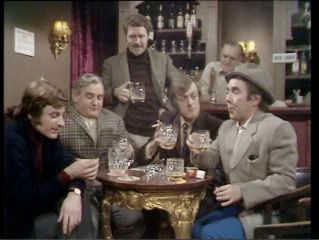
Audio
Audio is presented via a dual mono track. This is problem free. There are no subtitles.
Extras
Disc three includes an image gallery.
Overall
This is a gem of a release. Long unseen, these episodes of Frost on Sunday are both wildly entertaining and a key part of television history. Network’s release of these episodes is to be praised. References: Summers, Sue, 1993: ‘TELEVISION / Hired to make drama out of a crisis’. The Independent (21 July, 1993): en For more information, please visit the homepage of Network DVD.
|
|||||

|